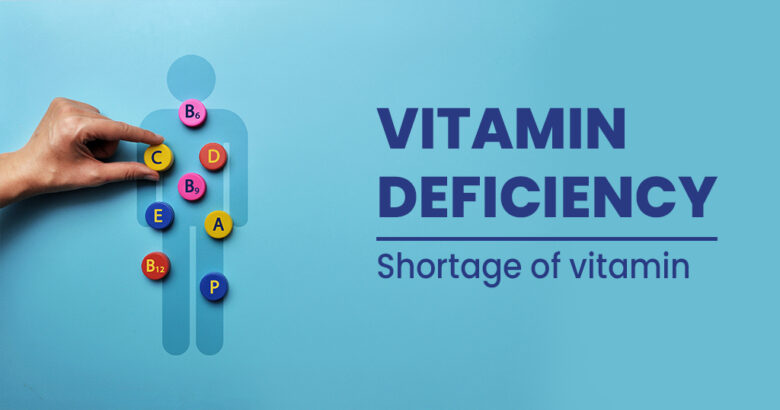In this fast-paced world of processed and fast-food foods, we don’t get as many vitamins as we think. Most people don’t notice how mild the symptoms of a nutrient deficiency are until they become severe and lead to serious health problems. The body is smart enough to let us know when we’re not getting the nutrients it needs. Yet, we often miss or misinterpret these signals. Something as seemingly small as easily broken nails or a constant feeling of fatigue can be a signal from your body that it needs help. The good news is that these early signs can usually be resolved once the problem is identified and addressed. This article will discuss common but easily overlooked signs of a vitamin deficiency and what they could be telling you.
Feeling Tired Often, Even When Resting:
If you feel worn out all the time, it may not just be because you’re busy. It could be your body’s way of telling you that you need more vitamin B12. Vitamin B12 is important for making red blood cells and using energy. When your levels are low, your body has trouble transporting oxygen efficiently, making you feel worn out all the time, even when you’re getting enough sleep. Iron deficiency exacerbates the problem by causing similar symptoms. If you don’t feel better after resting or drinking coffee, it may be time to check your nutrition. You may just need to eat more eggs and lean meats or take a vitamin B12 supplement to improve your condition. But it’s important to check these first.
Regular Muscle Cramps and Spasms:
A sudden cramp in your leg or a twitching eyelid may not seem like a big deal, but it could be a sign that you have a magnesium or potassium deficiency. These chemicals keep nerves and muscles functioning properly. When you don’t get enough of these, your muscles can cramp up at the most inopportune times. It’s important to check your complete mineral profile because low calcium levels can also cause the same symptoms. While exercise and drinking water can help, they won’t address the root of the problem when it comes to vitamins. If your muscle problems don’t go away, you may need to eat more fresh vegetables, nuts, seeds, or fortified foods that are rich in these important nutrients.
Hair Loss and Brittle Nails:
Are you losing more hair than usual? Are your nails splitting and breaking for no reason? These conditions could mean that you’re not getting enough biotin, also known as vitamin B7. Adequate biotin is important for healthy hair, skin, and nails. Even a small deficiency can make you look different. Iron and zinc deficiencies can also be detrimental to your hair health, causing it to shrink or grow more slowly. Some people are quick to buy expensive hair products or visit the spa for a treatment, but the solution may be simpler: eat more whole foods, such as eggs, nuts, and leafy greens, or take a high-quality multivitamin formulated specifically for you. You should always consult your doctor or nurse before taking vitamins.
Persistent Mood Swings or Depression:
If you don’t understand why you’re feeling anxious, irritable, or depressed, it could be more than just worry. There could be a problem with your diet. Mood disorders have been linked to low vitamin D levels, especially in the winter when people don’t get much sun. Similarly, without enough B vitamins, particularly B6, B9 (folic acid), and B12, your brain can’t produce neurotransmitters, which can be detrimental to your mental health. Emotional signals don’t always correlate with food, so people may not always notice these deficiencies. But to function optimally, the brain needs a steady supply of nutrients. Eating more fish, eggs, and dairy products and spending more time outdoors can make a big difference.
Wounds That Heal Slowly and Often Get Infected:
This can be because your immune system is not getting enough vitamin C and zinc. Such deficiencies can cause cuts and scrapes to take a long time to heal, or you can catch a cold. The presence of these two powerful substances is crucial for tissue repair and immune protection. They are essential for your body to heal quickly. Another crucial defense factor, often overlooked, is a vitamin A deficiency. Instead of taking several immune-boosting medications when you are sick, you can prevent yourself from getting sick by eating a nutritious diet all year round. For starters, oranges, bell peppers, pumpkin seeds, and sweet potatoes are all beneficial natural choices.
Cracks in the Corners of Your Mouth:
It may seem like you only have dry skin around the edges of your lips, but painful cracks or sores are often a sign that you have a deficiency of iron, vitamin B2 (riboflavin), or vitamin B3 (niacin). These vitamins help keep your face and sinuses healthy. If you’re not consuming enough of these vitamins, your lips may be the first to show signs of deficiency. If you also have dry skin, a swollen tongue, or sores in your mouth, the deficiency may be worse. Dairy products, lean meats, legumes, and leafy greens are some foods that can naturally relieve these symptoms. Don’t ignore these minor irritations; they’re your body’s first signs that something is wrong.
Vitamin Deficiencies or Light Sensitivity:
Vitamin deficiencies can also be unexpected and lead to eye damage. Vitamin A deficiency is the leading cause of preventable blindness worldwide. It can also make you blind at night or sensitive to bright lights. Vitamin E and omega-3 fatty acids are also crucial for healthy eyes and preventing dry eyes. If you notice small changes in the way your eyes adjust to the dark, or if they are constantly dry and itchy, the issue might not be related to screen time. It could be related to your diet. Adding nuts, vegetables, and oily fish to your meals can help keep your eyes healthy and clear.
Hands and Feet that Tingle or Feel Numb:
If you feel like your limbs are tingling, it is not always due to bad posture or pinched nerves. It could be a sign that you are not getting enough B vitamins, especially B12. These vitamins are essential for the repair and functioning of nerves. Nerves start to function incorrectly when they do not get enough, which in the worst cases can lead to strange sensations, weakness, or even loss of balance. The elderly and vegetarians often experience this, as animal foods primarily contain B12. If you experience these symptoms often, you should consult a doctor and possibly adjust your diet by eating more B12-rich foods or taking a vitamin supplement if necessary.
Conclusion:
Your body is constantly communicating with you, but it may be speaking a language you don’t yet understand. Vitamin deficiencies often manifest slowly and in small doses, making them simple to miss. Paying attention to these warning signs can make a huge difference in your long-term health and well-being. These signs—such as fatigue, brittle nails, mood swings, and vision problems—don’t just happen. They’re letting you know that something is wrong with your body. Fortunately, most deficiencies are easily remedied by adjusting your diet, taking supplements, or changing your lifestyle. Being aware and taking action is key. Pay attention and act quickly. Your body will thank you with more energy, healthier skin, and a stronger immune system.
FAQs:
1. How do I know if I’m not getting enough of a vitamin?
Some common symptoms include constant fatigue, frequent illness, poor skin or hair, and mood swings. The most reliable way to identify weaknesses is to have blood tests done.
2. Should I take vitamin pills if I eat well?
Not always, but sometimes—such as when you can’t eat certain foods, have certain health conditions, or can’t absorb nutrients properly—supplements can help fill in the gaps.
3. Is too much vitamin harmful to you?
Yes. Some vitamins, such as A and D, can be harmful if you take too much. Always follow the directions for proper dosage, and talk to your doctor before starting vitamins.
4. What is the most common vitamin deficiency?
One of the most common is a vitamin D deficiency, especially in areas with little sunlight. Many people also don’t get enough iron or B12.
5. How quickly can you treat a vitamin deficiency?
If you change your diet or take supplements, you may notice improvements within a few days to a few weeks, depending on the vitamin and how severe the problem is.




